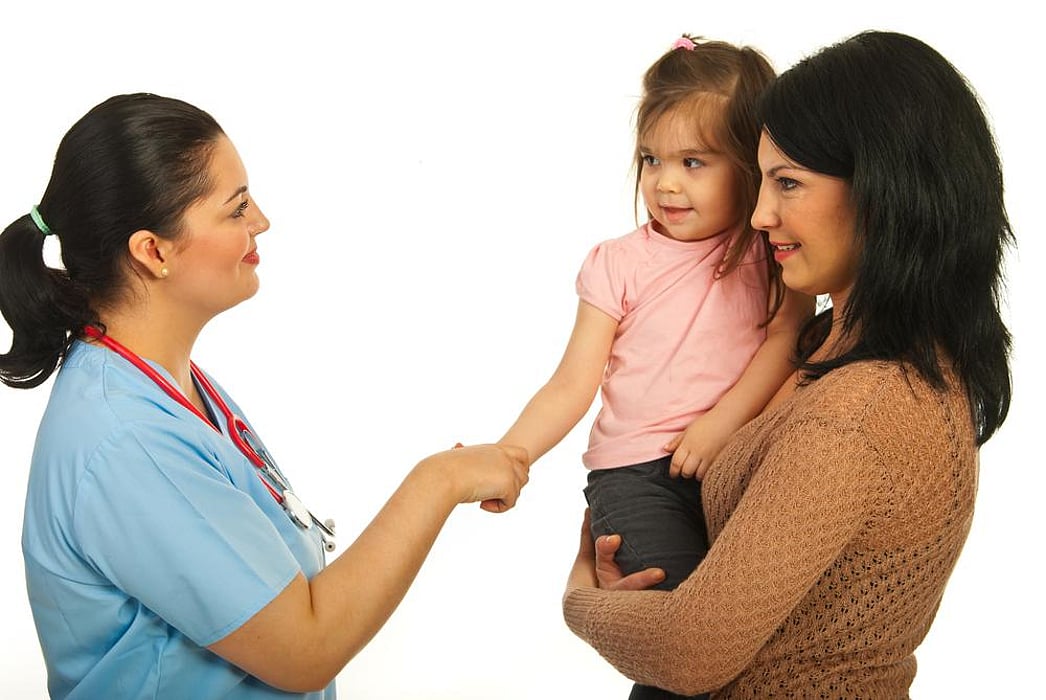Teaching Manners, Ages 3 to 6

When it comes to manners, what can I reasonably expect of my child?
Inconsistency, for one thing. A 4-year-old is capable of being amazingly polite one day and spitting his milk at you the next just to see what will happen. But even very young children can learn more than "please" and "thank you." You're teaching your child rules every day: Don't run into the street, don't put your hand on a hot burner, don't hit other kids. Small children thrive on structure, even as they continually test limits. Teaching good manners is merely setting a few more rules.
How should I start?
Start in small doses, setting realistic goals. You aren't going to get impeccable table manners out of a 4-year-old, but you can lay out a few basic requirements that apply to anybody who sits down to eat: Hats off the head at dinnertime. Mouths get wiped with napkins, not sleeves. Anyone who leaves the table should first ask to be excused. When it comes to sitting still at the family dinner table, be firm but reasonable. Twenty minutes with his butt on the chair may be hard work for a squirmy 5-year-old, but he can probably manage 15. You might want to set incremental goals, perhaps using a kitchen timer with a bell: 10 minutes at first, adding a minute or two as he gets the hang of it. Expect backsliding. Try to stay cheerful about it.
The key is to convey the basic principle -- guess what, there are rules called "manners" that everybody follows -- without loading on so many directives that you make your child (and yourself) miserable trying to keep them all straight. Decide on a few baseline social skills you'd like your child to have: saying "hello" and "goodbye" when grandparents come to visit; answering the telephone politely (a 6-year-old can learn to say, "I'm sorry. She can't come to the phone now"); sending thank-you notes, even if they're just thank you printed in crayon with a drawing. Then consistently enforce them, so they become inescapable facts of family life.
How do I keep manners instruction from turning into a war of wills?
Start by setting an example - something that's easier in theory than in practice. (How faithfully do you write your thank-you notes?) If your spouse is standing in front of the refrigerator when you need to open it, say "Excuse me." Follow through on the rules you've set -- if table manners only seem to be required when you have company, your child is going to catch on fast that they're mostly for show. Praise him when he makes the right moves, but don't make an enormous event out of good manners; the idea is to make basic courtesy as unremarkable and necessary a part of his life as a regular bedtime.
Your child may understand better if you explain manners as a form of respect for others. When it comes to interrupting, for example, you can tell your child it's not considerate to demand your attention when you're mid-sentence with somebody else. Remind him of how deflated he feels when someone cuts in on his stories of what he did today in preschool.
Be polite to your child, and when you have the time, practice a few extra niceties. (Small children love having adults defer gravely to them: "Would you please be so kind as to pass me the butter?")
Before social events, remind your child what's expected of him, especially if the situation will be unfamiliar. Rehearse en route, so that by the time you pull up in front of your relatives' house, your child hasn't forgotten the part about saying "hello." Remember, though, that he's going to blow it sometimes, because every child does.
After parties and other quasi-public events, it can also be quite effective, if somewhat more underhanded, to join your child in observing how awful some other kid's manners were. (Don't do this unless you're certain you won't be running into the bad-mannered child again soon, or your 4-year-old is going to spot him and cry, "Look, Mommy, the rude boy!")
Finally, remind yourself, when you're tempted to let unseemly habits slide, that it's not fair to your child to let him grow up thinking manners don't matter. His own friends know they do. As kids get older, they make book on each other -- they know which of their peers are thoughtless, mean, or bossy -- and an inconsiderate child gets a reputation. With your help, your child can be known as one of the nice ones.
References
Pantley, Elizabeth. Kid Cooperation: How to Stop Yelling, Nagging and Pleading and Get Kids to Cooperate. New Harbinger Publications.
Sears, William and Martha. The Discipline Book: How to Have a Better-Behaved Child From Birth to Age Ten. Little, Brown and Company.
Related Posts
Un parche cutáneo podría ayudar a aliviar la alergia al cacahuate de los niños pequeños
JUEVES, 11 de mayo de 2023 (HealthDay News) -- Un "parche de cacahuate" que se...
Warning Labels on High-Powered Magnets Unlikely to Prevent Child Injuries
MONDAY, Oct. 3, 2022 (HealthDay News) -- Parents of children with high-powered...
